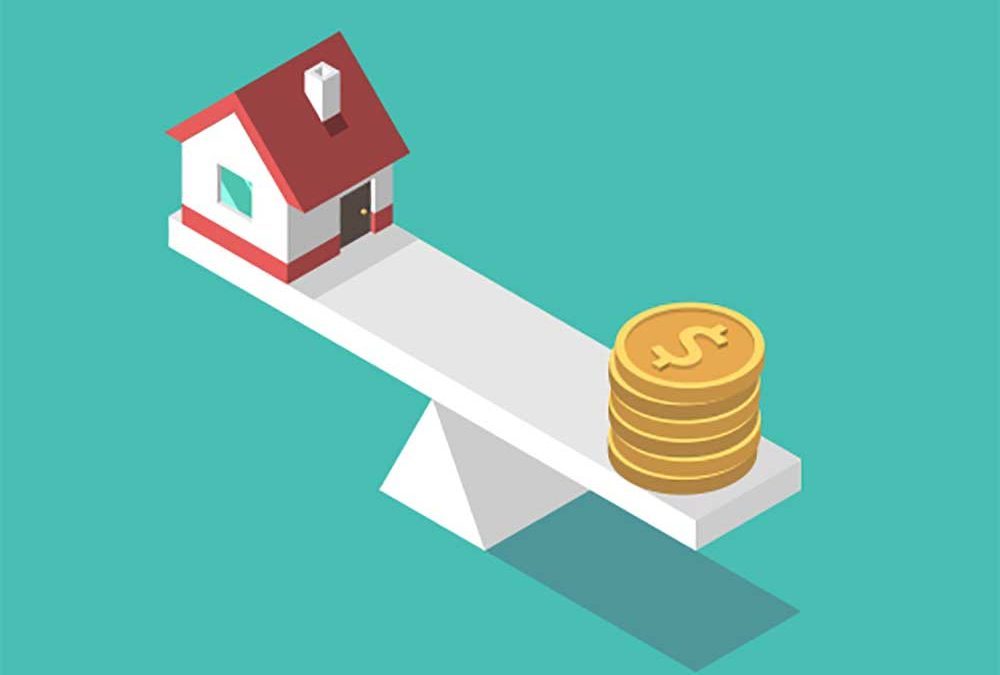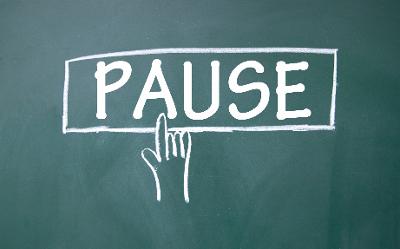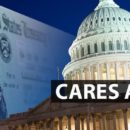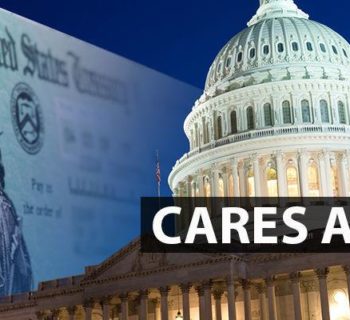 With nearly 22 million Americans filing for unemployment benefits in the last four weeks, the financial impact of COVID-19 continues to be felt by millions of businesses and workers. In fact, projections from the Federal Reserve suggest that the unemployment rate could temporarily spike to nearly 32 percent depending on the duration of the pandemic. Through a combination of state and Federal intervention, various programs have been implemented to try to assist those experiencing financial hardships including homeowners having difficulty paying their mortgage. From mortgage forbearance to moratoriums on foreclosure, there are various mortgage relief options for Americans with nearly $9.5 trillion in household mortgage debt.
With nearly 22 million Americans filing for unemployment benefits in the last four weeks, the financial impact of COVID-19 continues to be felt by millions of businesses and workers. In fact, projections from the Federal Reserve suggest that the unemployment rate could temporarily spike to nearly 32 percent depending on the duration of the pandemic. Through a combination of state and Federal intervention, various programs have been implemented to try to assist those experiencing financial hardships including homeowners having difficulty paying their mortgage. From mortgage forbearance to moratoriums on foreclosure, there are various mortgage relief options for Americans with nearly $9.5 trillion in household mortgage debt.
The first step in the process is to assess your situation and the need for assistance. According to the Consumer Financial Protection Bureau (CFPB), “If you can pay your mortgage, pay your mortgage.” They suggest not calling your mortgage servicer if you are not facing an immediate hardship or issue. On the other hand, if you are struggling to pay your mortgage because of job loss, reduced income, illness or other COVID-19 related issues, there are options available.
Protections through the CARES Act
The Coronavirus Aid, Relief, and Economic Security (CARES) Act puts in place protections for homeowners with Federally backed mortgages. The first protection is a moratorium on foreclosures. While the CARES Act stipulates a 60-day moratorium on foreclosures after March 18, 2020, states like NJ and NY have suspended foreclosures for 90 days.
The next form of protection provided by the CARES Act comes through the right to mortgage forbearance for any homeowner with a Federally backed loan. Forbearance is an agreement with your mortgage company for the temporary postponement of mortgage payments and is available for up to 180 days. Homeowners may also request one extension for another 180 days, providing one full year of delayed mortgage payments. While interest rates still apply to your loan, there are no additional fees or penalties beyond your scheduled payments and associated interest rate. You are also not required to submit any additional documentation other than having a Coronavirus related hardship and you will not have any delinquencies reported on your credit report.
 Forbearance is not the same as forgiveness
Forbearance is not the same as forgiveness
A forbearance agreement simply allows you to pause mortgage payments for a period of time without having to worry about foreclosure. In this agreement, the borrower agrees to resume paying the loan and any associated principal and interest that has accrued at a future date. Keep in mind, no debt is forgiven. Forbearance can be a critical life line for homeowners at a time like this and demand is surging. In fact, a recent report from the Mortgage Bankers Association notes that forbearance requests increased by 1,896% between March 16 and March 30. Since the beginning of March, the total number of loans in forbearance increased from 0.25% to 2.66% and is expected to climb.
Who holds/services your loan
The provisions in the CARES Act that provide protection to borrowers are for Federally backed loans so it is critical to determine who is servicing your mortgage. Start by visiting Fannie Mae at www.knowyouroptions.com/loanlookup and Freddie Mac at https://ww3.freddiemac.com/loanlookup/ to see if they back your loan. You can also search for the Mortgage Electronic Registration Systems link at www.consumerfinance.gov.
While nearly half of all mortgages in the United States are owned or backed by Fannie Mae or Freddie Mac, it is possible that your loan is not. In this case, contact your servicer directly as financial regulators have encouraged financial institutions to work with borrowers facing financial hardships because of the impacts of COVID-19. This may include loan modifications or forbearance and it is important to understand all of your options.
While forbearance may be helpful and necessary for many homeowners, it is important to understand the fine print, especially when it comes to when and how payments resume. For example, some mortgage companies may require borrowers to develop a payment plan, modify the loan or pay the amount due in a balloon payment or lump sum. Additionally, some lenders may offer to extend the term of the mortgage, adding any missed payments on the end of the loan. For this reason, the CFPB notes that it is important for borrowers to obtain all agreements in writing and maintain good records. It is also important to consult with resources at your state. In New Jersey, visit The New Jersey Housing and Mortgage Finance Agency as they have a list of resources and free advice - NJHMFA website.
Additionally, the CARES Act provides for a moratorium on evictions. According to the CFPB, if your landlord has a Federally backed mortgage, you cannot be evicted for nonpayment of rent for 120 days beginning on March 27, 2020, the effective date of the CARES Act. After the 120-day period is up, the landlord cannot require you, the tenant, to vacate until providing you with a thirty-day notice to vacate. Keep in mind, individual states have implemented their own laws that may be even more protective for renters so check with your specific state.
For New Jersey residents, the 2020 New Jersey Emergency Rental Assistance Program is a promising bill that if passed, would create a $100 million fund for renters that would be paid for first by using Federal grants from the coronavirus relief bill, with the remaining amount coming from the state’s general fund.
Since everyone’s situation is unique, consider speaking to your mortgage servicer, landlord and housing agency for more information.
Kurt J. Rossi, MBA, CFP®, CRPC®, AIF® is a CERTIFIED FINANCIAL PLANNERtm & Wealth Advisor. He can be reached for questions at 732-280-7550, kurt.rossi@Independentwm.com, www.bringyourfinancestolife.com & www.Independentwm.com. LPL Financial Member FINRA/SIPC.










